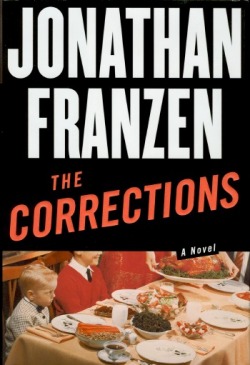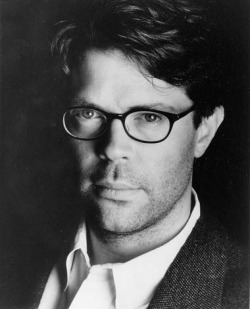Because although Oprah may not choose all of the best writing that is going on in America, she does choose quality literature (for the most part) and how could you not want to be in the same club as Anna Karenina or Beloved? Although I understand that many authors try to maintain this certain persona, this palpable disdain for mass media production and consumption, I also know that almost any author would be thrilled to receive that phone call from the woman herself.
That is, unless your Jonathan Franzen. Franzen published the Corrections in 2001 to much critical acclaim. One of the leading proponents of the novel happened to be Ms. Winfrey, and Franzen was asked to come on the show to talk about his smashing success of a novel. But then things turned. Comments made by Franzen were leaked, and it was revealed that he expressed trepidation about being a member of Oprah's elite. For Franzen, and perhaps for many other men, Oprah and masculinity do not go hand and hand. Franzen felt that by having that golden sticker on his book cover, many men would be turned away from reading his novel.
And he might have a point. According to Franzen, much of the literary world is sustained by women in America while the men go off and watch football or play video games. Franzen, with his novel about the decline of a mid-western family, hoped to reach this lost masculine audience, and he felt like Oprah might derail his course. So he said, "No thank you" and he ended up doing just fine. More than fine, actually, as he won a slew of literary awards and public appreciation, plus the bragging rights that he did it his own way.
The novel itself is both comedic and tragic. The unraveling of a mid-western family is captured with energetic prose, almost as if Franzen finds nothing more entertaining or important than the small failures that exist in our daily lives. Centered around the collapse of the patriarch, Alfred, the story moves between his demise into old age and dementia and the failures of his three children. Within the first eighty pages, the reader begins to realize that this family is one in which fortune choose to smile upon, if only briefly, before human stupidity came along and messed everything up.
Chip, a once successful and content literary professor, makes the all too common mistake of sleeping with a student. Gary, a husband and a father, finds that his life in Philadelphia, with all its surface pleasure, has left him hollow and even depressed. He feels alienated and conspired against by his wife and children, although surrounded by his own family, he feels isolated, alone. And then Denise, the youngest child, becomes wildly successful as a chef in the city, only to throw her opportunity aside when she becomes romantically involved with a certain individual. Yes...these children suffer and yet we can help but smile as Franzen brilliantly pulls us along for the ride, indulging precious details about their inner and outer lives.
Enid, the wife of Alfred, and the woman responsible for much of the guilt her children wrestle with, suffers in more subtle yet equally painful ways. She is saddened by the loss of her children, their refusal to settle in the mid-west, and their inability to see the importance of coming home. She suffers through a loveless marriage, all the while knowing that life could be something so much more vibrant, so much more fulfilling. And yet, despite this knowledge, she stays by her husband's side and nurses him through good and bad times, through sickness and health. She nags, she confronts, and she remains unfulfilled for much of the novel.
This work, although at times depressing, offers the reader the ability to connect with characters that likely resemble their own families. Not only will you connect with these characters and their hardships, but you will find yourself laughing, you will find yourself examining, and you will find yourself expanding. Life, in this world and in our dysfunctional families and communities, is difficult, but it is also exhilarating and humorous and worth taking a stab at, day after day. This is what the Corrections reminded me of. It reminded me that we're all in this together. We are all stupid and selfish at times, but then again, we have our moments of compassion, grace, and beauty.


 RSS Feed
RSS Feed
